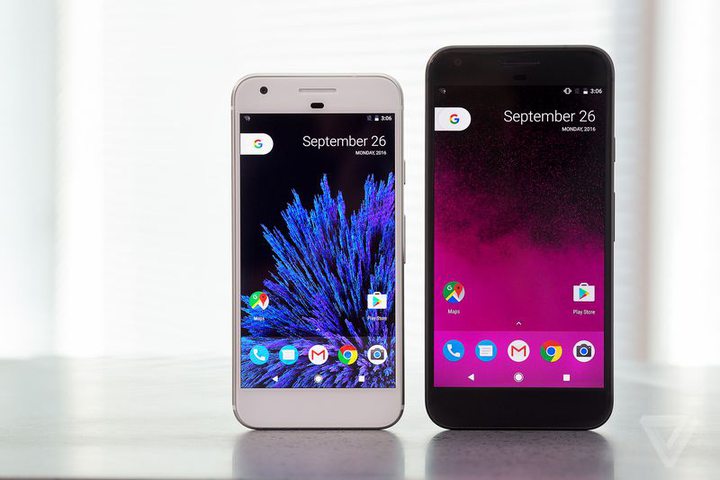As the Note 7 dies will Google inherit the Android kingdom?

Google Pixel and Pixel XL smartphones
When Mountain View unveiled the "made by Google" Pixel recently, some wondered what it meant for the Android ecosystem. If Google can capitalize on the demise of the Note 7, it could mean a significant shift in the Android hardware landscape. And it could happen faster than anyone thought.
That said, a highish price tag ($769 or $869 for the 32 or 128GB XL version) and limited carrier options (Verizon in the US, and EE in the UK) currently give brands like Samsung, Huawei and LG some breathing room. But, there's no denying the Note 7 leaves an immediate hole that needs filling, and the Pixel XL could be a logical fit.
Samsung's Note arguably defined (and then did away with) the term "Phablet." The first model was "only" 5.3-inches -- normal by today's standards -- but this was at a time when the current iPhone had a mere 3.5-inch display. Samsung also normalized the dual-sized flagship strategy. We don't think anything of a company launching a handset along with a "pro" or "plus" model these days.
While Samsung is often maligned (or legally charged) for copying Apple, it's not hard to argue the Note was the one thing Cupertino envied. Its success was clearly the inspiration for the iPhone Plus. The demise of the Note 7 today is not the end of big phones from Samsung (it makes many of those), but the Note brand may be in danger. And now there's a gap in the market just ahead of the holidays.
Enter Google Pixel XL
"Made by Google." That's how Mountain View sold its Pixel phones to the world at their California launch last week. The reality, however, could be that Pixel ends up being made by Samsung. At least in a metaphorical sense. The Pixel lineup was already imposing on Samsung's turf. The "regular" 5-inch Pixel and a 5.5-inch "XL" version would stand shoulder to shoulder with the 5.1-inch Galaxy S7 and 5.7-inch Note 7.
Then there was the Daydream VR headset that didn't just step, but rather trampled on the GearVR's toes in the mobile virtual reality space. This might not have been a direct attack on Samsung -- most phone lineups resemble this, and Samsung could make Daydream handsets -- but the parallels to the Korean giant's mobile offering were undeniable. Even if Google was ostensibly setting its sights on Apple.
Pixel, on the other hand, needs every chance it can to get it's hooks in the public's mind. The Nexus brand never fully managed this. Samsung might have had problems with the Note 7, but it's dominated Android in terms of both brand recognition and sales. The Pixel, with its fancy AI "Assistant" and big camera boasts had instant tech-appeal, but the relatively high upfront cost and limited carrier options aren't setting it up for mass appeal.
Google just needs to make the Pixel XL easier and cheaper to get hold of. Right now, unless you're on Verizon in the U.S., you have to either pay upfront or buy direct from Google (and pay monthly on top of your cell plan). And even with a contract, the Pixel isn't cheap. In the UK, EE is the only direct operator, but it's available on other networks via one online retailer. Not to mention that, ironically, with Samsung's Note out of the way, Google's biggest competition for the Pixel XL could be the relatively affordable Moto Z ($624) from the formerly Google-owned Motorola.
Here's the big question: Can Google position the Pixel XL at a more competitive price and mop up the Note 7 market? Then it address the second issue: getting the phone sold through more operators. It's not clear if Google's exclusivity deal with Verizon is just for the launch window or the life of the phone (we've asked). But, getting more operators onboard seems the most surefire way for Mountain View to get the Pixel into the largest amount of hands, quickly.
Google's newly appointed (and formerly of Motorola) hardware boss Rick Osterloh proudly told Bloomberg "[Pixel,] it's ours." Osterloh was referring to Pixel being the first phone designed in house (albeit assembled by HTC). He was perhaps also reasserting Google's place in the hardware game (and moving away from the experimental Nexus Q and Google Glass era). We're sure Google wasn't expecting Samsung to help with its goal, but the Note 7's demise could be the surprise gift Pixel needed.





